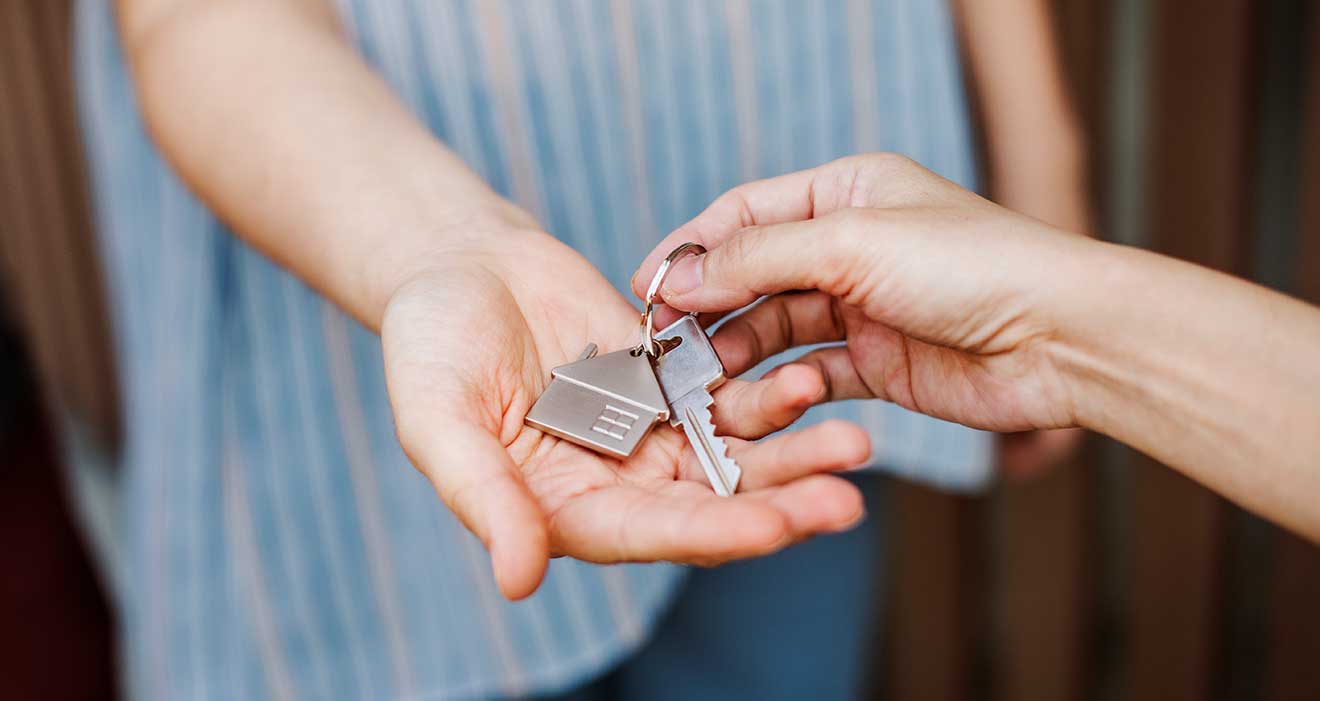To own, or not to own – that is the question. There are many factors that contribute to your decision to either rent or own your home. For some, a tell-tale sign that they're ready to buy is when they calculate the cost of renting versus buying and the answer is in the math.
And the answer is in the math. And if math isn't your thing, but you've been toying with the idea of buying a home, here are 5 reasons to consider taking the mortgage plunge. Now, if you're thinking home ownership is for you, here are some tips to get you ready to take the leap.
Save for your down payment
It takes time, but starting to set money aside to build your down payment is step one. A general rule of thumb is to aim to have 20% of the purchase price of a home saved by the time you're ready to buy. For example, if you're thinking of a home in the $250,000 range, your down payment goal should be $50,000.
Keep in mind that saving to buy a house is more than a down payment. There are other upfront expenses you can expect during the purchase process, such as appraisal and inspection fees.
Some good news is you can also accept a gift from a (generous) immediate family member to move into a new home. You can use this money to top up your down payment if you haven't saved the full amount.
Understand the price of "paying up"
It's important to think about all of the costs of homeownership because saving to buy a house is more than a down payment or a monthly mortgage payment. As a homeowner, you'll have regular expenses like property taxes, monthly condo fees, potential Home Owner Association fees and utility (electricity, gas and water) charges.
You should also consider the long term maintenance of the home. What will it cost to keep the home in good shape? Ask yourself questions like: how old is the furnace and/or hot water tank and will you have to replace them? Does the internal or exterior need a fresh coat of paint?
Establishing a budget for fixed expenses, as well as setting aside a smaller amount per month for future repairs/maintenance should be a part of your home buying plan.
Find out how much mortgage you can afford
Mortgages can feel confusing. When it's time to start thinking about how much mortgage you can actually afford, it's best to get advice from an expert. Make an appointment to talk to your financial advisor or a mortgage professional. At the appointment, they'll review a couple things:
- Your current income and debts. Look at your Gross Debt Service Ratio (GDS) and your Total Debt Servicing (TDS) to calculate how much of a monthly payment you can reasonably carry.
- Government stress testing rules.The government implemented these rules in 2018 and they may impact the amount you'll qualify for. A CBC article from July 2019 outlines some recent changes aimed at providing more leniency.
A mortgage professional can also help you with understanding your mortgage payments and decide which payment option suits you best.
Consider what mortgage rate terms are best for you
The type of rate you want will play a key role in helping you choose the mortgage that's right for you.
Your options may include:
- Fixed – Guaranteed for the length of the agreed upon term, with no risk of this increasing when rates go up during the period of the term.
- Variable – Based on the Bank of Canada's prime rate, which can fluctuate up or down. If you choose this option, your monthly payments will increase if the prime rate goes up.
- Open – Usually much higher than fixed or variable, but don't include any payout penalties if you make any changes to your mortgage agreement or sell your home.
- Flex-Line – Typically have a fixed and revolving loan portion. The fixed portion can have a fixed or variable rate, whereas the revolving portion is always based on prime rate.
There are pros and cons that come along with any type of rate. Your personal situation will inform the one you choose.
Take advantage of government incentives
The Government of Canada has programs for first-time home owners that can help alleviate some of the financial pressures of purchasing a home.
Canada's First-Time Home Buyer Incentive
The First-Time Home Buyer Incentive is a grant that can help qualified buyers reduce their monthly mortgage payments, without increasing the amount needed for their down payment. It acts as a shared equity mortgage with the Government of Canada, meaning the government shares in the upside and downside of your property's value.
When it's time to repay the grant, your repayment amount is based on your home's value at that time, so that amount might be higher or lower than the initial grant you received.
The Home Buyers' Plan
The Home Buyers' Plan allows you to withdraw up to $25,000 from your Registered Retirement Savings Plan (RRSP) to use as a down payment to buy or build a home. This loan doesn't count as income so you won't pay tax on it, as long as you keep up with the minimum annual payments and put the money back into your RRSP within 15 years.
Take the next step
Once you're ready to "make it official", contact a mortgage professional and set up a time to complete a mortgage application and you'll be one step closer to being a homeowner.


